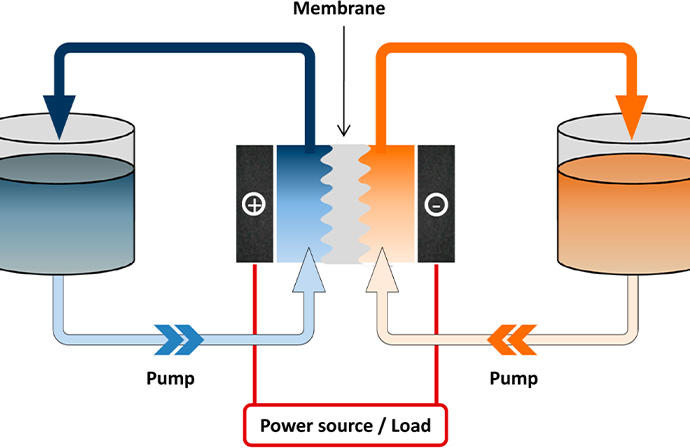
Abstract: Redox flow batteries are suitable for modular and flexible energy storage systems for different applications of power Storage. In recent decades, the energy resources available have been rapidly and continuously depleted and could lead to serious global energy crises. Researchers focus on developing new and renewable energy resources to meet the growing fuel demand and reduce greenhouse gases emitted from engineering to use redox-flow batteries, including recent advances on new active redox materials, cell designs, and systems. There is also an increasing research effort to replace hybrid and electrical alternative fossil-fuel-based vehicles. The best combination of power, cost, and versatility are electrochemical energy storage systems and redox battery flow systems that are currently the most important in this area. In this work, the various flow battery redox systems and their hybrid alternatives are provided with a panoramic overview. Documented and critically discussed related published work. A systematic analysis of the technologies available is carried out in terms of both technological and environmental aspects. A host of other study opportunities and a number of flow battery limitations are addressed as well as technological challenges. The flow battery technologies examined have gained the most attention and promise for all redox flow batteries in various pre-commercials to stationary applications up to now, while new advances in hybrid redox fuel cells promise to lead for future mechanical or electrically re-powered applications. Although relatively new, the technology has the potential to improve dramatically by lowering material costs, improving performance, and significantly reducing the overall device costs.
Keywords: Batteries; energy storage systems; grid integration; redox flow batteries; renewable integration.
